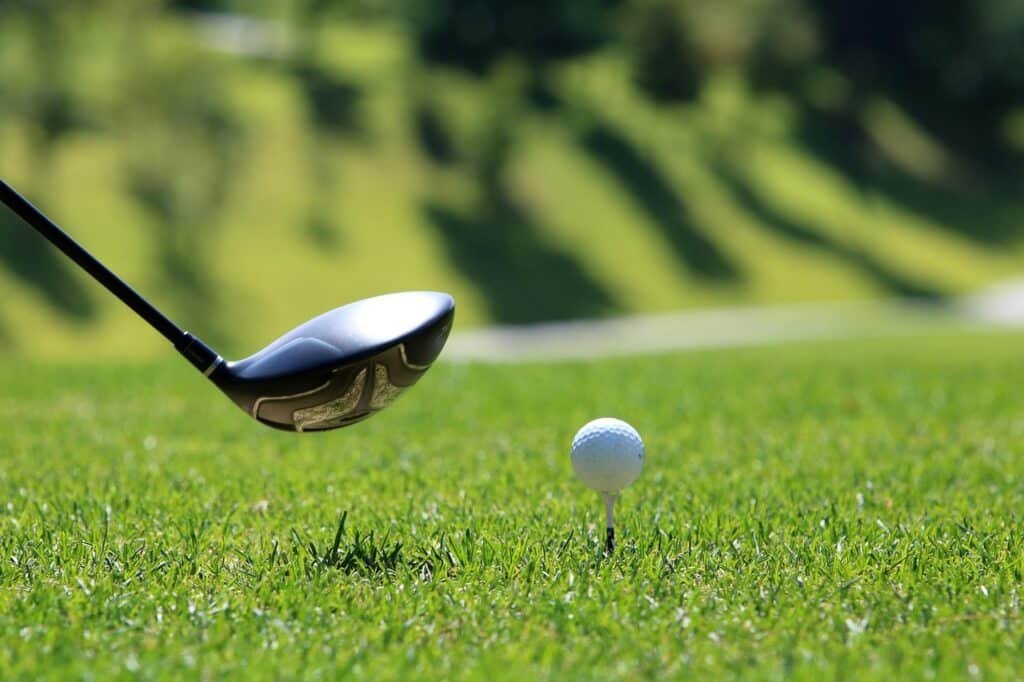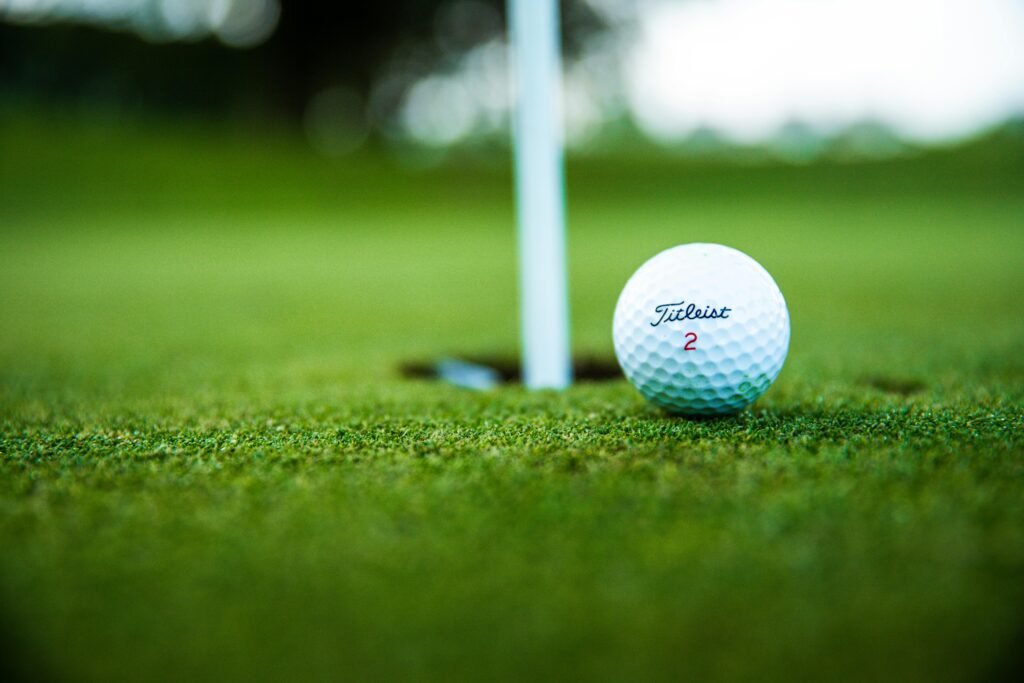How Do I Start Playing Golf? – Learn the essential steps to begin your golf journey, from choosing the right equipment to mastering basic techniques.
How Do I Start Playing Golf? Learn Techniques to Begin Golf Adventure
Golf is more than just a sport; it’s a passion, a challenge, and for many, a new way of finding fitness and outdoor enjoyment. Whether you’re a complete novice to the world of golf or a sports enthusiast looking to add another feather to your cap, starting your golfing journey can seem daunting. This definitive guide aims to equip you with everything you need to know to confidently step onto the green and start playing golf. Let’s explore How Do I Start Playing Golf?
A Brief Overview for Complete Beginners
Golf is a game of precision, patience, and strategy, played on large outdoor courses. The object of the game is simple: to hit a small ball into a series of holes with as few strokes as possible. Despite its straightforward goal, golf challenges players with varying terrains, obstacles, and distances, making it a lifelong pursuit for many enthusiasts.
Beginners should begin by studying the fundamentals, which include knowing the different kinds of clubs (driver, irons, and putter), honing their grip, stance, and swing, and being acquainted with the game’s regulations and customs. To lay a strong foundation, learning from an expert is also beneficial. Due to the fact that golf demands both mental and physical skill, patience and practice are essential.
Golf Basic Terms: Beginners Need to Know
For those who have never played golf before, it is essential to grasp the fundamental terminology. The following are some essential terms to understand:
Tee: The little peg at the beginning of a hole where the ball is positioned.
Fairway: The part of the course that is kept up between the tee and the green is known as the fairway.
Green: The region surrounding the putter’s hole that has been clipped closely.
Other Important Golf Terms
Par: Par is the standard number of strokes that are used on every hole.
Birdie: Making a hole in one stroke under par is known as a birdie.
Bogey: Taking one stroke over par to finish a hole.
Handicap: A method of allocating strokes according to skill level in order to level the playing field.
Putt: A soft stroke used to roll the ball onto the green and into the hole.
Drive: A shot made from the tee that is long-range.

Essential Gear for Golf: How Do I Start Playing Golf?
Before you can hit your first tee shot, you’ll need some basic equipment. Here’s a rundown of the essential gear every golfer needs:
Golf Clubs
A standard set includes drivers, irons, wedges, and a putter. Beginners don’t need a full set; starting with a driver, a putter, and a few irons (like a 5-iron, 7-iron, and 9-iron) is sufficient.
Golf Balls
opt for durable, two-piece construction balls designed for beginners. Usually, golf balls are very cheap. You can buy from amazon within reasonable price range.
Golf Bag
Choose a lightweight, durable bag to carry your clubs and accessories. You have to very careful before buying golf bag. Because of you need to carry all of your golf accessories in this bag. So, proper size and durability is very important.
Attire
Golf courses have dress codes, typically requiring collared shirts and golf shoes. Invest in comfortable, breathable clothing designed for golf. Though, many people like to play golf January to March and September to November. But many people also like to play during summertime. So, it is important to choose right summer attire for both men and women.
Golf Products to Buy
Here we gathered all best reviewed golf related products from Amazon for saving your time. Let’s jump on the list-
Golf Ball
- HyperElastic SoftFast Core Delivers Increased Ball Speed with Soft Feel
- Optimized for faster speed and soft feel around the green.
- Exceptional Feel, Control and Spin with Long Distance From Our Hybrid Cover
- New Precision Technology delivers our tightest dispersion, consistently fast ball speeds and total performance. We’ve en…
- New Hyper Elastic SoftFast Core for Tour level speed, spin, and control through the bag.
- Consistent ball flight at every condition with our Tour Aero design.
- 3 piece cast urethane cover ball construction with extra-thin cover for high short game spin
- Designed for advanced golfers with medium swing speeds to maximize driver distance and benefit from maximum wedge spin
- Outstanding spin control and soft feel off the club
- Supersoft has been one of the most popular golf balls for years, and we’ve combined incredible cover, core and flight te…
- The new Hybrid Cover features an innovative PARALOID Impact Modifier made by DOW Chemical. This multi-material construct…
- The High Speed Soft Compression Core maximizes energy transfer to increase ball speeds, while also promoting high launch…
Golf Bag
- UNIQUE QUIET DESIGN: This innovative golf bag features a specialized top that securely holds all clubs in place; the uni…
- EXTRA STORAGE SPACE: Provides 30% to 50% more space than standard bags; includes a large cooler compartment that holds a…
- 14-WAY ORGANIZER DIVIDER: Comes with a soft molded handle and oversized putter well (2.2 x 2.52 inches). The divider sys…
- nylon
- Imported
- Club Management Design Top- Molded 14 Way Top Organizer protects irons from damage as well as keeping clubs from rattlin…
- Midsized 4-way top with full-length dividers
- 6 pockets including a velour-lined valuables pocket, an insulated water bottle pocket, and a large apparel pocket
- Hook and loop glove attachment
- Versatile Segmentation: The UNIHIMAL Golf Cart Bag comes with 15 separate compartments , effortlessly organizing and saf…
- Rain Protection: Equipped with a dedicated rain cover, shielding your golf clubs and equipment from rainwater intrusion,…
- Comfortable Portability: Designed with user-friendly handles, easily carried and placed on a golf cart, enabling seamles…
Attire
Choosing the Right Equipment: Expert Advice
Selecting the right equipment is crucial for your enjoyment and success in golf. Pro golf instructors emphasize the importance of getting clubs that match your skill level and physical characteristics. “It’s not about the most expensive clubs, but the right clubs for your game,” shares a seasoned golf instructor. Beginners should consider getting fitted for clubs – a process where clubs are tailored to your height, swing speed, and grip size.
Setting Up Your First Game: Navigating the Course
Finding a course suitable for beginners is your next step. Look for local courses that offer beginner-friendly features, such as shorter yardages and a relaxed atmosphere. Understanding tee times (the scheduled start time for your round) and basic etiquette (such as not talking during a swing and repairing divots) will help you feel more comfortable on the course.
Importance of Proper Technique
Mastering the fundamentals of a good golf swing and putting stroke is vital. “Focus on your grip, stance, and posture. If you like to get more information how you should focus on grip, stance and swing, you can explore our article- “how to avoid injuries in golf”. These are the building blocks of a successful golf game,” advises another pro instructor. Many golf courses offer lessons for beginners, which can be an invaluable investment in your golfing education.
Injuries are also avoided with proper technique. Golf entails repetitive motions that can cause strain or injury in the shoulders, back, wrists, and elbows if performed improperly. Acquiring and honing the proper form lowers the likelihood of these problems. Furthermore, proficient approaches improve the game’s intellectual component. Gaining confidence increases performance, and golfers may concentrate more on strategy and course management when they have a solid grasp of the fundamentals.
Ultimately, whether playing for fun or competing, taking the time to master the right methods makes golfing safer, more effective, and more pleasurable.
Golf for Fitness: Walking the Course
Golf is an excellent way to enhance your fitness routine. Walking an 18-hole course can cover a distance of 4-6 miles, providing a good cardiovascular workout. Carrying your clubs adds strength training to your regimen. There are additional mental health benefits to golf. Playing the game demands focus and strategic thinking, both of which can improve cognitive performance. In addition to lowering stress and fostering relaxation, being outside in nature improves mental health in general.
Next Steps: Deepening Your Golf Knowledge
As you progress in your golfing journey, consider taking more lessons, joining a club, or participating in group clinics to refine your skills. Watching professional golf tournaments and reading golf literature can also deepen your understanding and appreciation of the game.
Conclusion
Starting your golf adventure can be one of the most rewarding decisions you make. It offers the chance to enjoy the outdoors, improve your fitness, and challenge yourself in new ways. With the right equipment, a basic understanding of the game, and a commitment to learning, you’ll soon find yourself reaping the many benefits that golf has to offer.
“Remember, every pro golfer was once a beginner. The key is to keep practicing, stay patient, and enjoy the game,” encourages a renowned golf coach. With that spirit, we invite you to pick up your clubs and start your golfing journey today. Who knows? You might just find your new passion.
Frequently Asked Questions
Do I need to buy a full set of golf clubs as a beginner?
No, you don’t need a full set when you’re just starting. A driver, a putter, and a few irons (like a 5-iron, 7-iron, and 9-iron) are sufficient for beginners to learn and enjoy the game.
How do I know which golf balls to buy?
Beginners should look for two-piece construction golf balls, which offer more forgiveness on mis-hits and are generally less expensive. These balls are designed to provide durability and a good distance.
What should I wear to the golf course?
Most golf courses have a dress code requiring collared shirts and golf shoes. It’s recommended to wear comfortable, breathable clothing designed for golf. Also, consider the weather conditions and dress appropriately.
Is it necessary to take lessons?
While not mandatory, taking lessons is highly recommended for beginners. Lessons from a professional can help you learn proper techniques and avoid developing bad habits that can be difficult to correct later.
Can golf really improve my fitness?
Absolutely! Golf offers a great cardiovascular workout, especially if you choose to walk the course instead of using a cart. Carrying your clubs can add strength training to your routine, making golf a well-rounded physical activity.
What is the best way to learn golf etiquette and rules?
Many golf courses offer beginner courses that include lessons on etiquette and rules. Additionally, there are numerous books and online resources available. Learning from more experienced players can also be valuable.
Remember, the key to enjoying and improving at golf is patience, practice, and a willingness to learn. Whether you’re on the driving range, taking lessons, or playing your first round, every step is a part of the exciting journey that is golf.

















